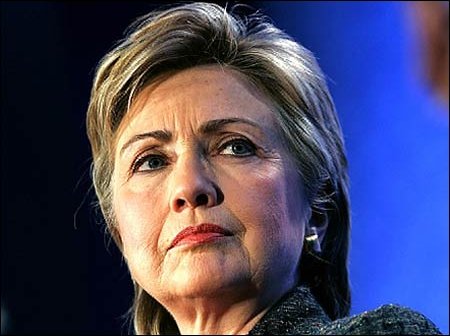ANALYSIS: Will Clinton's spring wind bear NATO-Russian fruits?
 Brussels - There was a spring wind blowing in Brussels on Thursday as US Secretary of State Hillary Rodham Clinton met NATO counterparts to discuss their problems with Afghanistan and Russia.
Brussels - There was a spring wind blowing in Brussels on Thursday as US Secretary of State Hillary Rodham Clinton met NATO counterparts to discuss their problems with Afghanistan and Russia.
That atmosphere was mirrored inside the alliance's grim, grey headquarters building, as ministers lined up to hail the United States' new chief diplomat.
"There is a fresh wind in NATO," German Foreign Minister Frank- Walter Steinmeier said to describe Clinton's approach to diplomacy.
Just over six months ago, in the same building, Clinton's predecessor, Condoleezza Rice, spearheaded the decision to break off regular formal talks with Russia - the NATO-Russia Council (NRC) - in response to Russia's August invasion of Georgia.
On Thursday Clinton was one of the strongest voices calling for a resumption of the NRC, urging NATO colleagues to "explore a fresh start" with Russia.
"I don't think you punish Russia by stopping conversations with them," she told the press after the meeting.
Despite the dispute over Georgia, Russia remains a key US ally for its war in Afghanistan, providing supply routes, air transport capabilities and potentially even weapons to the Afghan army.
And analysts say that the diplomatic thaw towards Russia signalled by Clinton and her colleagues in the government of President Barack Obama is born from a need for heavyweight allies on the global scene.
"Washington needs Moscow on issues such as Iran, perhaps North Korea, maybe on the Middle East, Kosovo, NATO enlargement, and of course Afghanistan," Markus Kaim, head of security studies at the SWP Institute for International and Security Affairs in Berlin told Deutsche Presse-Agentur dpa.
Indeed, in the same meeting, Clinton called for a regional conference on Afghanistan's future involving not just allies like Pakistan, but old enemy Iran, in a further major shift in policy.
"If we move forward with such a meeting, it is expected that Iran would be invited," she said.
Russia, meanwhile, has seen its economy devastated by the collapse in world energy prices and a slump in industrial output - making it just as keen to find international allies.
"Six months ago, Russia's line was that 'NATO needs Russia more than we need them.' That contest is over now," Bastian Giegerich, research fellow on European security at the International Institute for Strategic Studies, told dpa.
The diplomatic spring blossomed on Thursday as NATO foreign ministers agreed to relaunch the NRC after the alliance's 60th- birthday summit on April 3-4.
"We have areas where we believe we not only can, but must, cooperate with Russia," such as fighting terrorism and nuclear proliferation, Clinton said.
Analysts and diplomats alike hailed the decision, with a Russian foreign-ministry statement calling it a victory for common sense.
But they also warned that it could take some time for the spring wind to turn to summer warmth.
The NRC has long been deeply criticized, with Russia saying that it was a place for NATO to gang up on it, and NATO allies saying that Russia seemed to be there to obstruct progress.
Any bid to revive it will only work if the council is completely overhauled, analysts say.
"There has to be a re-think of its main purpose. Re-starting the NRC only makes sense if it is backed up by pragmatic cooperation on real-world issues," Giegerich said.
And that will only work if the two sides can not only agree on how they meet, but what they are meeting for.
"The basic misunderstanding over the NRC has not been decided. NATO looks at it as an instrument to look for common action in the international security arena. Russia sees it as an instrument to influence the decision-making process in NATO," Kaim said.
"My educated guess is that that will continue," he said.
Clinton has already brought an early spring to NATO-Russia relations. Her challenge now is to make sure the fragile bloom does not succumb to a late diplomatic frost. (dpa)